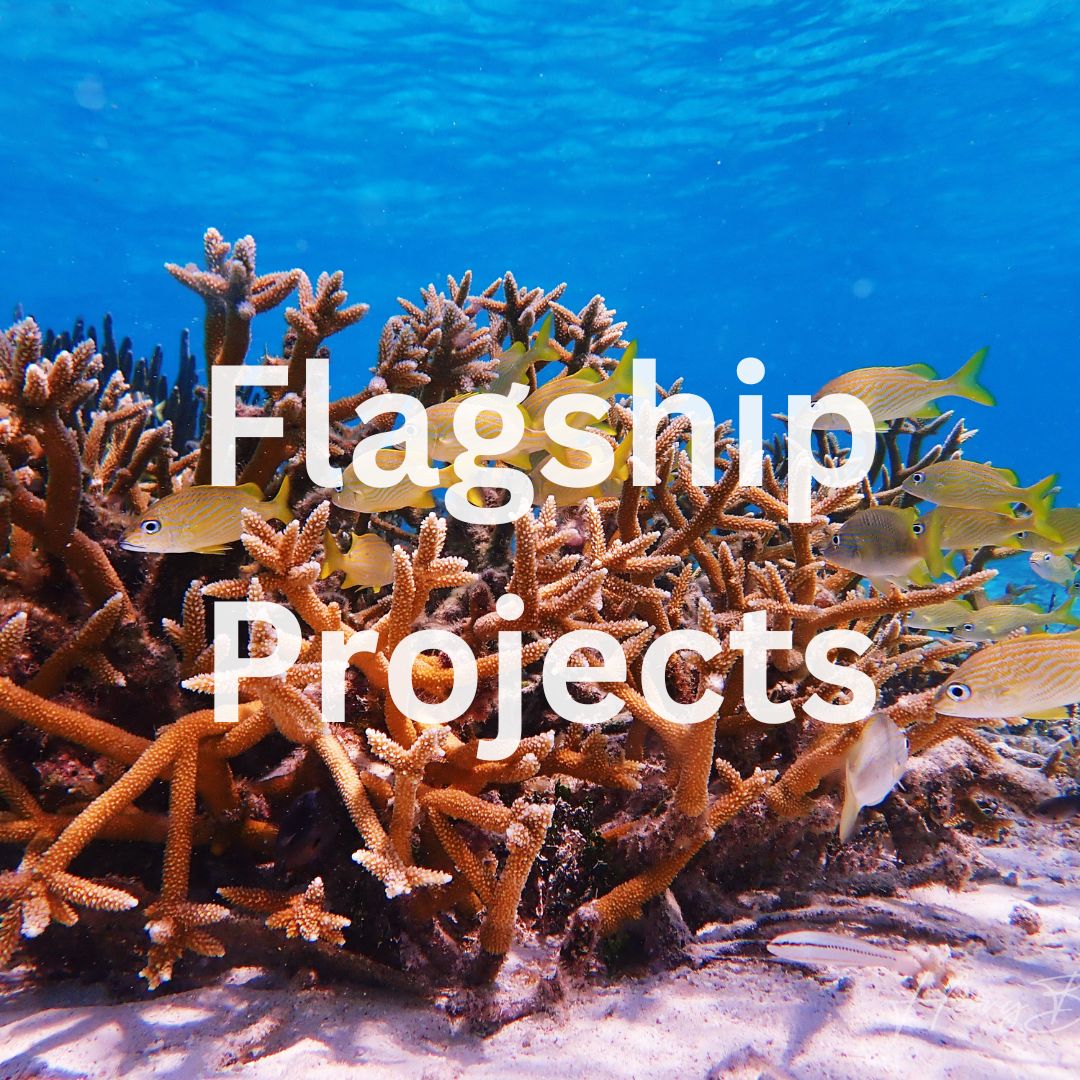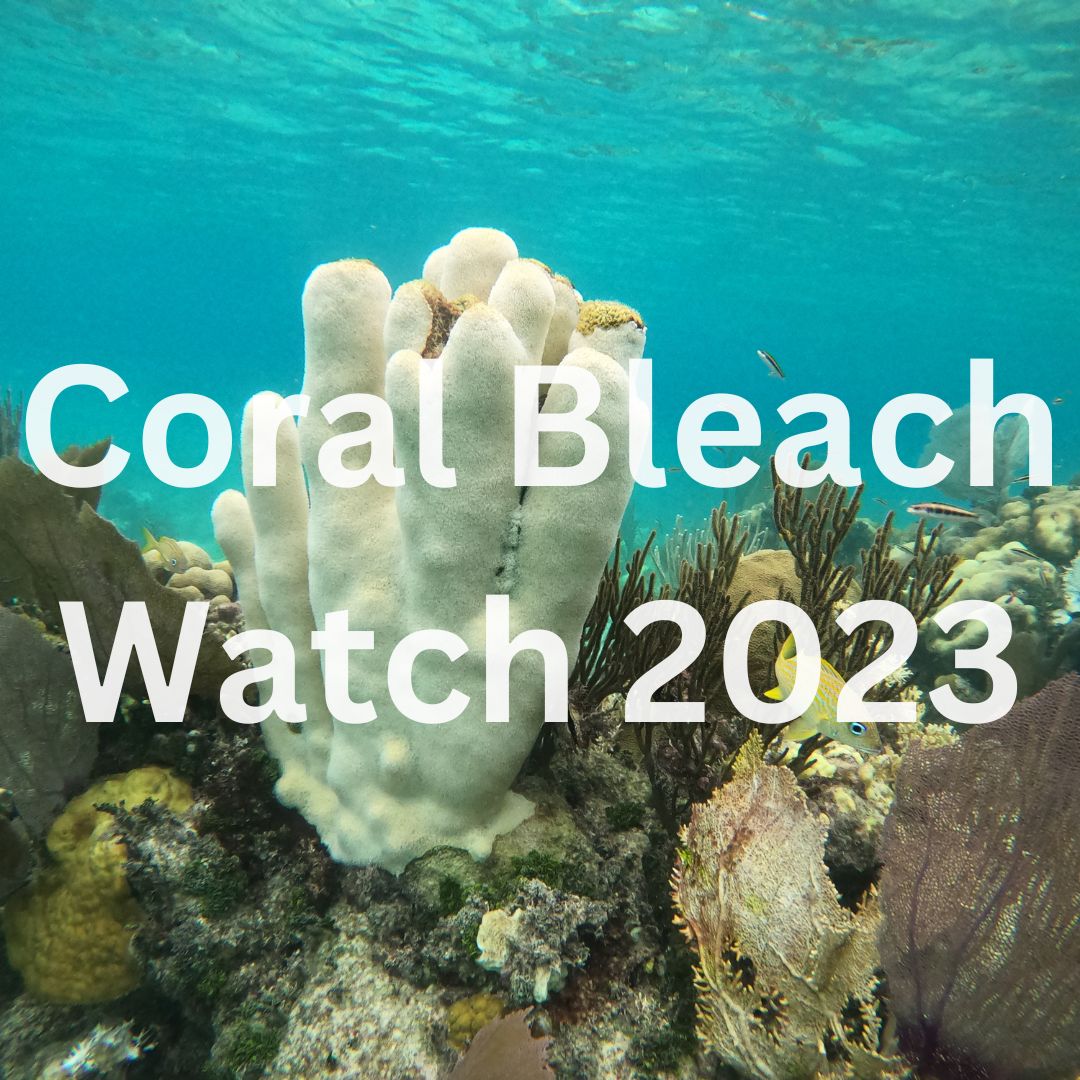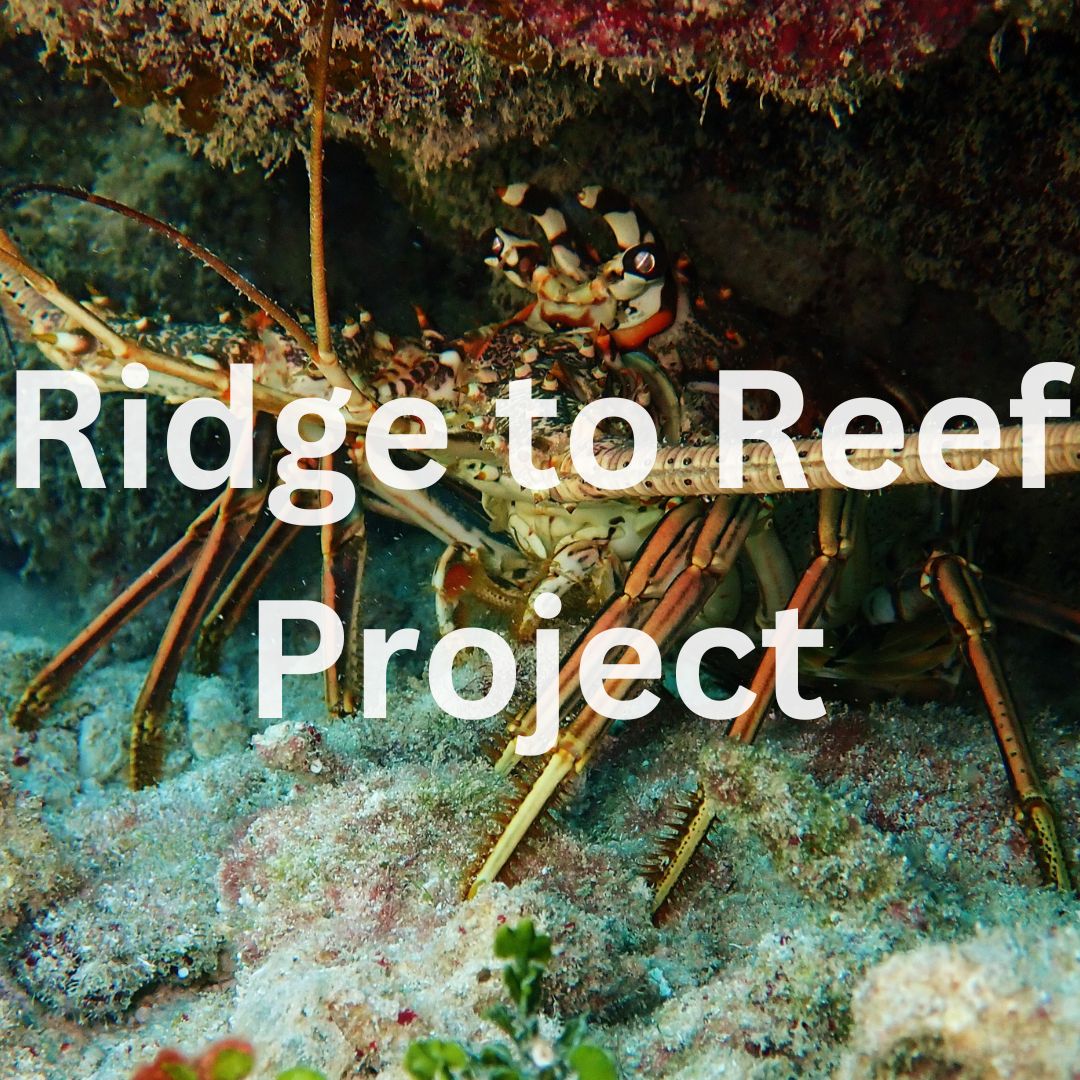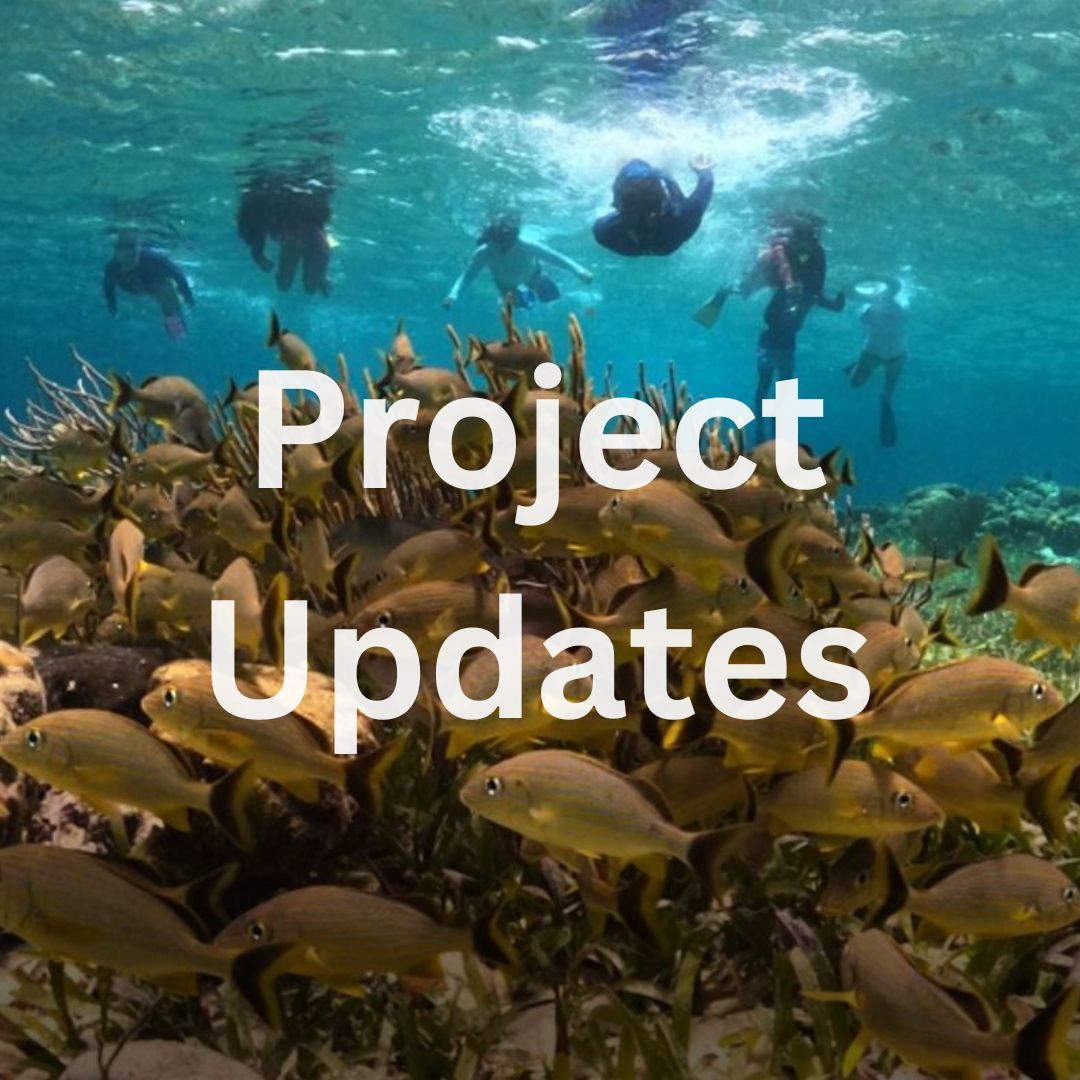Project Title
“Enhancing Reef Health Through a Ridge to Reef Program for Improved Watershed Management and Enhanced Water Quality Monitoring in Belize.”
This project falls under the RRI framework established through collaborations tied to GBRF. A call for proposal was extended to all pilot site locations within the preliminary strategy, and Belize, among others submitted proposals. On October 2nd, 2023, the call was placed for on-ground action in Resilient Reefs’ reef sites.
On December 14th, 2023, we received news that our submission was the ONLY proposal approved in its original form.
Project Goal
The overall project aims to address critical environmental challenges in Belize and promote sustainable resource management through a collaborative effort led by CZMAI and includes the following Government agencies: Department of the Environment (DOE), the Belize Forest Department (FD), the National Hydrological Service and the Belize Fisheries Department.
Project Partners
The Belize Forest Department (FD) is mandated with the sustainable use of Belize’s forest resources; this includes actions such as protection, conservation, controlled exploitation, and restoration of degraded areas.
The National Hydrology Service is the government agency entrusted with the task of upholding the water policy of the Government. Their primary responsibilities encompass the implementation of Integrated Water Resource Management, providing guidance on watershed management, and ensuring the creation and dissemination of precise, punctual, and high-quality hydrological products and services.
The National Hydrology Service is the government agency entrusted with the task of upholding the water policy of the Government. Their primary responsibilities encompass the implementation of Integrated Water Resource Management, providing guidance on watershed management, and ensuring the creation and dissemination of precise, punctual, and high-quality hydrological products and services.
The Strategy for Reef Resilience in Belize highlights watershed management as a notable ecosystem and governance challenge impacting the well-being of coral reefs. The Strategy states that “Watershed management remains a key priority for management entities and coastal communities; however, overlapping mandates and limited capacity to effectively implement management strategies have led to reactive measures rather than proactive planning. Wastewater concerns, also threatens watersheds, coastal habitats, coral reefs, and local communities.”
As a result, the proposed project is designed to improve watershed management and enhance reef health through a comprehensive two-year Ridge to Reef program in Belize.
Specifically, this project will support the following components to safeguard the ecological balance and vitality of the Belize Barrier Reef Reserve System:
- Validate degraded forest areas in North Stann Creek Watershed.
- Assess saline intrusion and sediment transport in Monkey River Watershed.
- Enhance water quality monitoring in 4 major watersheds; and
- Implement water quality monitoring in key coastal and marine areas of Belize.
COMPONENT 1.0 VALIDATING FOREST DEGRADATION IN THE NORTH STANN CREEK WATERSHED
The Forest Department (FD) is dedicated to the sustainable management of Belize’s forests, with a focus on watershed protection, rehabilitation, and ecosystem restoration. They aim to validate landscape restoration data generated through the Restoration Opportunity Assessment Methodology (ROAM). Specifically, this proposal encompasses the ground truthing and validation of this ROAM data within a prioritized watershed, North Stann Creek in southern Belize.
Coral reefs, critical for biodiversity, tourism, and coastal livelihoods, are highly sensitive to changes in water quality, with sediment and pollutants causing stress and damage. By validating levels of forest degradation, managers can get a better understanding of the impact on sediment runoff and water quality. A ‘ridge to reef’ approach promotes the interconnectedness of terrestrial and marine ecosystems and healthy forests stabilize river flows, reducing sediment reaching the coast, thus safeguarding coral reefs, and coastal ecosystems. This holistic approach recognizes the importance of preserving forests to maintain water quality and protect vital marine ecosystems.
COMPONENT 2.0 ASSESSING SALINE INTRUSION AND SEDIMENT TRANSPORT IN THE MONKEY RIVER WATERSHED
Saline intrusion directly impacts water resources, with instances of saline intrusion affecting water supplies up to 17 miles inland, exceeding the recommended 1km threshold. This project will provide concrete solutions and data to safeguard water resources, enhancing the resilience of Belize’s communities in the face of environmental challenges.
Furthermore, assessing saline intrusion and sedimentation is integral to reef health because these factors directly impact the coastal and marine ecosystems, including coral reefs. Saline intrusion, often associated with rising sea levels and excessive groundwater extraction, can contaminate freshwater sources, leading to changes in water chemistry and quality that can stress and harm coral reefs. Sedimentation, caused by factors like deforestation and poor land-use practices, can result in excessive sediment runoff into coastal waters, smothering and damaging coral reefs.
COMPONENT 3.0 ENHANCING WATER QUALITY MONITORING IN 4 MAJOR WATERSHEDS
Currently, the DOE implements water quality monitoring programmes for four rivers, which include on site sample collection and laboratory analysis. The addition of four stations will increase the coverage of the monitoring programmes.
Establishing water quality monitoring stations is vital for coral reef health. These stations
track water quality, detecting potential pollutants and stressors that can harm reefs. They measure parameters like temperature, salinity, nutrient levels, and pollutants. This data pinpoints the sources of water quality issues, such as runoff from agriculture, industry, or deforestation. By identifying these sources and trends, stakeholders can take timely actions, such as improving land use practices and wastewater treatment, to protect and restore coral reefs. In summary, water quality monitoring stations are crucial for informed conservation efforts and safeguarding reef health.
COMPONENT 4.0 IMPROVING WATER QUALITY MONITORING IN CENTRAL AND SOUTHERN COASTAL AND MARINE AREAS
It is increasingly clear that nutrient pollution is a key threat to the Belize Barrier Reef Reserve System, with years of data showing that fleshy macroalgae has increased over the last decade. Specifically, from 2016 to 2021, the percentage of fleshly macroalgae cover for Belize has increased from 12 to 18% (Mesoamerican Reef Report Card, 2022). The overly abundant macroalgae interferes with coral growth and recruitment, thereby reducing reef resilience. The abundance of macroalgae is attributed to both top-down controls (reduced herbivory from parrotfish and urchins for example) and bottom-up controls, including pollution of coastal waters with excess nutrients from untreated and inadequately treated sewage, as well as agricultural runoff, emanating from watersheds and complex oceanography.
Additionally, the study “Analysis of Resilience to Climate Change for Marine Protected Areas of the Mesoamerican Reef” highlights the critical need for the collection of water quality data in Marine Protected Areas. As a result, there is a need to sustain water quality monitoring in the central region and expand the program to include southern coastal and marine areas to identify the levels and sources of nutrient pollution as well as sedimentation in Belize. This is key for the development of a data-driven approach to designing and deploying appropriate solutions. However, fully tackling this problem will require a holistic approach applied at the national level and through coordinated efforts with the delivery partners including the Fisheries Department, The Department of the Environment, Forest Department, National Hydrological Service and with other Government and private sector in the agricultural sector.
This RRI project is expected to Launch in August 2024.




